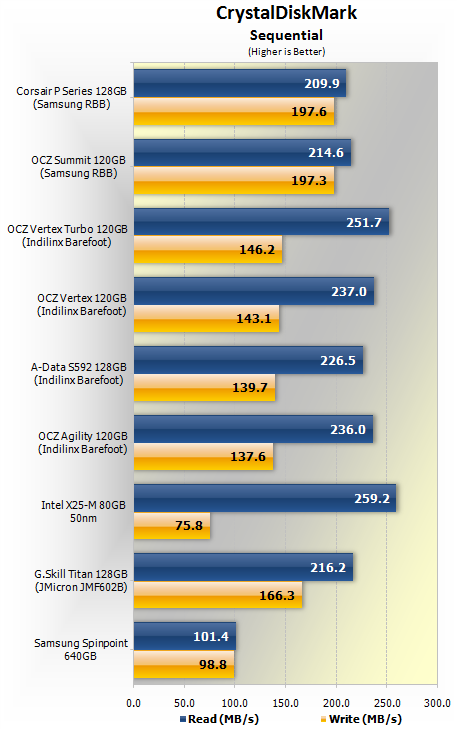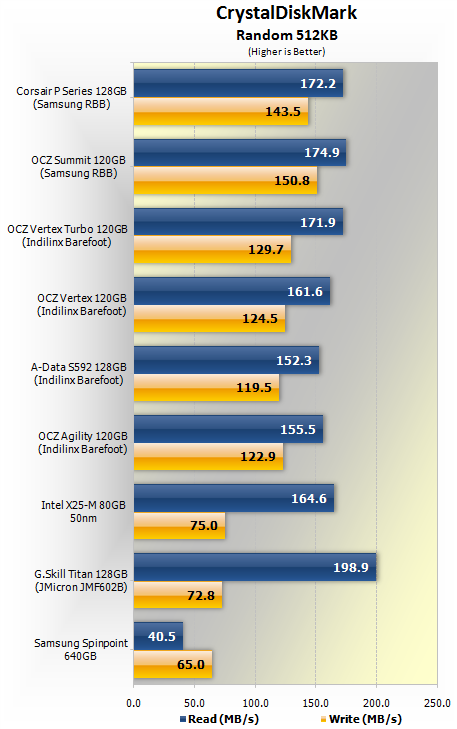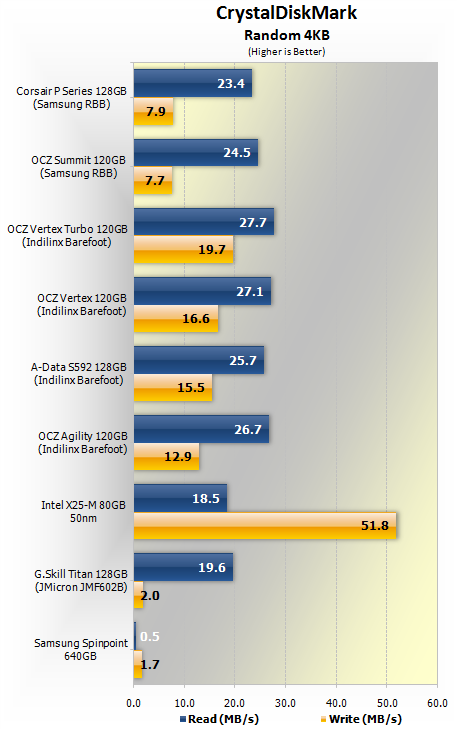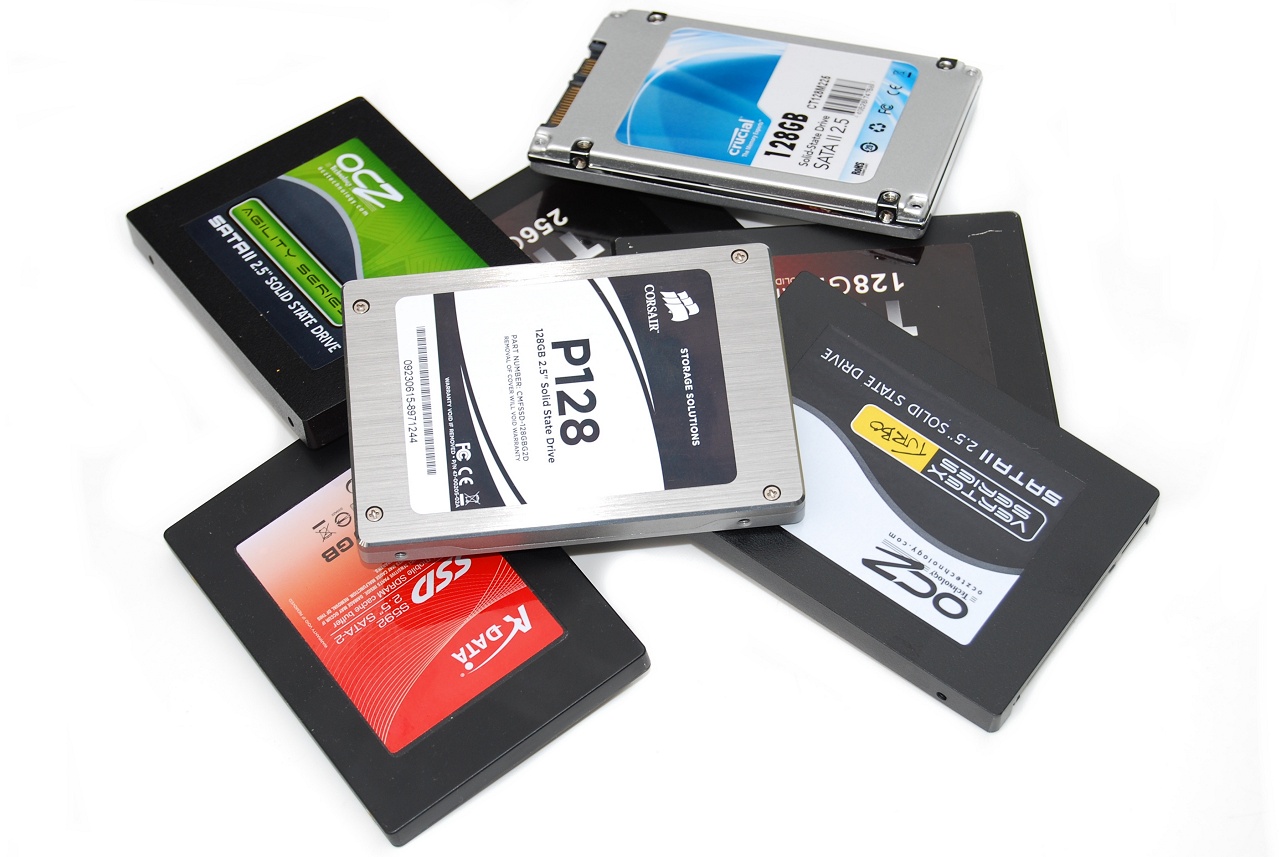Benchmarks: CrystalDiskMark

When testing with CrystalDiskMark the Corsair P Series 128GB again matched the performance of the OCZ Summit. The sequential performance of the Corsair P Series is far greater when compared to the OCZ Vertex Turbo, or any of the Indilinx Barefoot SSDs for that matter. The read performance on the other hand favors the Indilinx Barefoot SSDs, while the Intel X25-M produced the best absolute result.
It is interesting to note that in this particular test the OCZ Agility is able to match the write performance of the A-Data S592 128GB, while delivering greater read performance.
The OCZ Vertex was only slightly faster than the Agility, while the Vertex Turbo delivered significantly better read performance.

The random 512KB test mixes up the results quite a bit, though the Samsung based SSDs are still superior to those of the Indilinx Barefoot SSDs, at least in CrystalDiskMark anyway.
It is interesting to note that the OCZ Agility is actually faster than the A-Data S592 128GB in this test, despite utilizing slower NAND flash memory. In fact, the Agility was not a great deal slower than the original Vertex drive.
Again the write performance of the OCZ Vertex Turbo was not greatly faster than the original, while the read performance was boosted by 10MB/s, getting it up near the Corsair P Series 128GB SSD. The Intel X25-M still dominated the "read" test, with a throughput of 199MB/s. The write performance of the Intel drive was quite soft however, matching the G.Skill Titan.

This is where most SSDs suffer, small writes, and it is this test that hurts the Samsung based SSDs. Here the write performance of the Corsair P Series 128GB is roughly half that of the A-Data S592 128GB. In fact, the read and write performance of the Corsair P Series, and the OCZ Summit, are lower than the budget-minded OCZ Agility.
The OCZ Vertex Turbo was 3MB/s faster than the original model, as it reached 19.7MB/s write performance. Quite impressive compared to the other Indilinx Barefoot SSDs, however the Intel X25-M was more than twice as fast, delivering 51.8MB/s.
